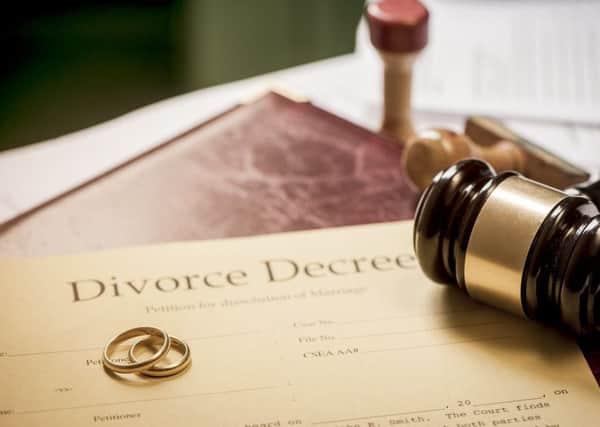Jennifer Wilkie: English courts have different approach to ongoing maintenance


The recent English divorce case of Mills v Mills clearly highlights the difference between the English and Scottish approach to maintenance after divorce.
In the English case of Mills, a divorced wife has been able to secure further ongoing funding from her ex-husband some 15 years after their marriage ended.
Advertisement
Hide AdAdvertisement
Hide AdAfter divorce, Mr Mills had continued to pay his wife maintenance in an amount of £1,100 per month. As part of the divorce settlement, the former Mrs Mills had also been paid a sum of £230,000, almost all the Mills’ liquid capital
The capital having been spent on some poor property investments, Maria Mills looked to her former husband Graham to increase the payments he has been paying and continue to make those payments for life.
Quite understandably, Mr Mills argued that he should not be ordered to pay for his former wife’s unfortunate investment decisions and particularly as he now has a new wife and family to support. Mrs Mills is 51 and is not without employment.
It is not clear what the original amount sought by Mrs Mills in the variation application was, but the judge ordered that the monthly payments should increase to £1,441 per month so that Mrs Mills can meet her basic needs.
Contrast this with the approach and likely circumstances of a Scottish divorce case and the outcome would be vastly different.
In Scotland, where an award of maintenance has been made or agreed upon, either party may request or apply to the court to have the maintenance payment altered while it is still being paid.
Distinctly different from the Mills English case is the fact that it is uncommon to see a situation in Scotland where maintenance would still be being paid 15 years after a couple have divorced.
In Scotland, our legislation prescribes as one of the five financial principles to be taken into account that maintenance, referred to as periodical allowance when paid after divorce, shall be paid for a period of up to three years.
Advertisement
Hide AdAdvertisement
Hide AdIt is important to emphasise the “up to” part of this sentence as the three year period is not an absolute.
It is only in special circumstances where serious financial hardship can been shown that the payment period would extend beyond three years.
Where an agreement or order of the court stipulates periodical allowance is to be paid after divorce, either party may, on a material change of circumstances, seek to revise, both upwards or downwards, the amount of maintenance to be paid.
To that end, we do have a similar way to revise maintenance awards as in the Mills case.
However, given the limited period of the maintenance, unless the award is to be varied downwards, for example on the loss of employment, it is rare for there to be an application to the court to revise the maintenance provision.
The Scottish court will not overturn a provision in an agreement between spouses to renounce the right to future maintenance unless it was not fair and reasonable in all the circumstances at the time it was entered into.
It is important that any agreement renounces such right at the time of signing.
Jennifer Wilkie is a senior associate in Anderson Strathern’s family law team